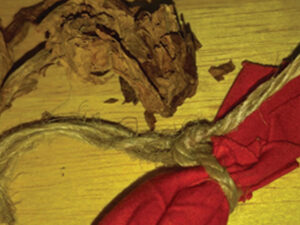Steadfast Love in a Time of Flux

Jonah 3:1-5, 10; Psalm 62:5-12; I Corinthians 7:29-31; Mark 1:14-20
Reflection by Matthew Diegel
Each of our readings speaks of uncertain times, times on the edge of change. Jonah enters the great city of Nineveh and begins to proclaim the divine warning of its destruction. The psalmist prays for deliverance from a time when economic injustice rules the day. Paul tells the Corinthians that everything is about to change, and that they must get ready. Jesus comes to the Sea of Galilee and convinces people out fishing to leave everything behind and to follow him. Nothing, it seems, for any of these persons, is stable, or permanent. Everything is in flux; the future is up in the air.
Those speaking about climate change point out that if the world doesn’t reform its ways, we also are on the edge of everything changing as we know it. Yet, too often we seem incapable as a human race of responding in ways that will bring about the healing of God’s creation and restore our place in creation as its stewards and protectors. As we struggle in our role as the Creator’s assistants, is the world going to collapse, as Paul predicts? Or, will people finally listen, as happens in Nineveh? Will others, as those in the boats on Galilee, hear and join the movement for restoration? Or will they refuse to listen, and just continue what they were doing? Change is happening, but too often it doesn’t appear to be for the better. At these moments, we can wonder about our efforts, whether what we can do makes a difference. Or, is it too late for the people to hear?
Some years ago, the night sky took on special meaning for me. After a late-night emergency hospital call, I made my way to back to my car, feeling weighed down by the pressure and hopelessness of the encounter with pending death. Then I looked up and saw a brilliant full moon and several shining stars. At the same time, I felt the presence of a comforting God, not only with me but with those I had left behind in the room. Creator was with us during this time, promising to hold us, to help the dying one on their journey, and to bring the rest of us through the night, and the nights to come, until we could once more see the light of the Son.
Although I can’t do so with the passage from 1 Corinthians, I can envision those in the other readings having a similar connection to God. Jonah travels a day’s journey – did the moon and stars and sun give him strength or refresh his shaky trust that God was with him? Is the psalmist offering this prayer of hope in the midst of the night, in a quiet place, where all the chaos of the day is left behind? Do the fisher folk encounter Jesus after having set out to make their living by the light of the early morning moon and stars? Has the rising of the sun told them when it’s time to go back to shore, their fishing finished for the day? We will never know for certain this side of eternity.
Still, right now, in the midst of the struggle over climate change, the moon, stars, and sun can be signs for us that Creator is in our midst. As the psalmist sings, they can remind us that God is our hope, our rock, our salvation, our fortress, and our refuge. God calls us to trust at all times in the steadfast love of the Lord. God has not given up on us. The Lover of us all calls on us to hold on, and not abandon this journey of faith. Life will continue to change; at times it will seem dark and bleak. However, God calls us to witness, to proclaim the vision of the Creator, and to work to heal creation, for this and future generations, so that all can see the moon, the stars, and the sun.
Matthew Diegel lives in Thunder Bay, Ontario, on the traditional territory of the Objiway of the Fort William First Nation, signatory to the Robinson Superior Treaty of 1850. He is pastor at Our Saviour’s Lutheran Church, a congregation of the Evangelical Lutheran Church in Canada.











